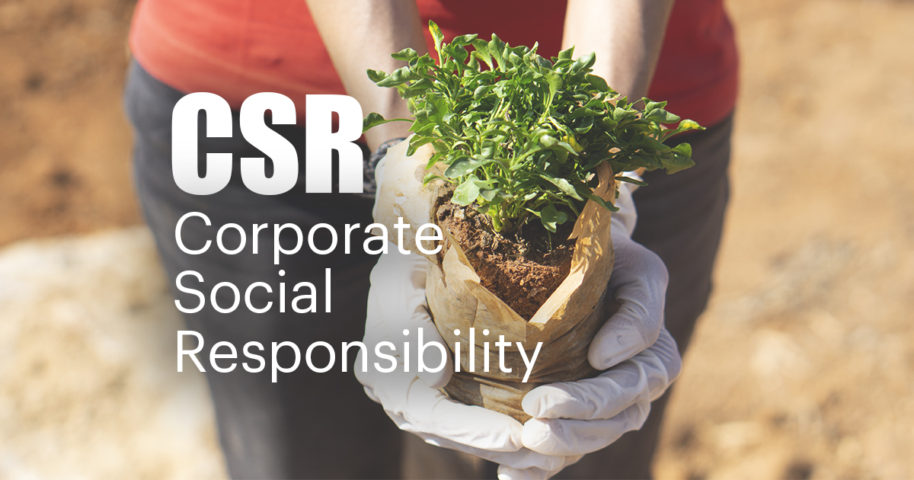
Corporate Social Responsibility (CSR)
What Is Corporate Social Responsibility?
CSR (corporate social responsibility) is a self-regulatory business model that enables a corporation to be socially responsible—to itself, its stakeholders, and the general public. Companies should be aware of their effect on all facets of society, including economic, social, and environmental, by exercising corporate social responsibility, also known as corporate citizenship.
CSR refers to a company’s decision to act in ways that benefit society and the community rather than harming them in the ordinary course of business.
Understanding Corporate Social Responsibility (CSR)
Corporate social responsibility is a broad term that varies depending on the business and sector. Businesses can support society while boosting their brands through CSR services, philanthropy, and volunteer efforts.
CSR is important for the environment, but it is also important for businesses. Workers and companies can form a stronger connection through CSR initiatives, which can raise morale and make both employees and employers feel more linked to the world around them.
- Both customers and corporations respect corporate social responsibility
- Starbucks is a pioneer in implementing corporate social responsibility initiatives around the board
- Corporate responsibility initiatives are an excellent way to boost employee productivity.
To be socially responsible, a corporation must first be accountable to itself and its shareholders. Companies that implement CSR systems frequently have evolved to the point where they can give back to society. As a result, CSR is essentially a corporate strategy. Furthermore, the more recognizable and competitive a company is, the greater its duty to set ethical standards for its peers, competitors, and industry.

Example of Corporate Social Responsibility
Starbucks has long been recognised for its contribution to sustainability and community welfare, as well as its strong sense of corporate social responsibility. Starbucks, according to the company, has met all of its CSR goals since it first opened its doors. These achievements include achieving 99 percent ethically sourced coffee, establishing a global network of producers, pioneering green building in its stores, donating millions of hours of community service, and launching a groundbreaking college program for its partner/employees, according to the company’s 2019 Global Social Impact Report.
Starbucks plans to recruit 10,000 refugees by 2020 and beyond, as well as reduce the environmental impact of its cups and involve its staff in environmental leadership. 1 Today, several socially conscious businesses, such as Ben & Jerry’s ice cream and Everlane, an apparel store, have brands that are recognised for their CSR initiatives.
Special Considerations
The International Organization for Standardization (ISO) published a set of voluntary guidelines in 2010 to assist businesses with implementing corporate social responsibility. Since the essence of CSR is more qualitative than quantitative, and its criteria cannot be certified, ISO 26000 offers guidelines rather than specifications.
Instead, ISO 26000 describes social responsibility and assists organizations in bringing CSR values into practice. The norm applies to all types of companies, regardless of their size, operation, or location. ISO 26000 represents an international consensus since it was developed with the help of several key stakeholders from around the world.
Frequently Asked Questions
What is corporate social responsibility (CSR) and what does it entail?
The word “corporate social responsibility” (CSR) refers to business practices and policies that are meant to have a positive effect on society. CSR is based on the premise that businesses should follow such pro-social goals in addition to maximizing income. Minimizing environmental externalities, encouraging volunteerism among company workers, and contributing to charity are examples of common CSR goals.
Why should a business participate in CSR?
Many businesses see CSR as an important part of their brand image, assuming that consumers would choose to do business with companies they consider to be ethical. In this way, CSR practices can be an integral part of a company’s public relations strategy. At the same time, some business owners are inspired to participate in CSR by personal convictions.
What is the effect of corporate social responsibility (CSR)?
The step toward CSR has had an impact on a variety of places. Many businesses, for example, have taken steps to enhance their operations’ environmental sustainability by implementing renewable energy sources or buying carbon offsets. Efforts have also been made to reduce dependence on unethical labor practices, such as child labor and slavery, in supply chain management. Small companies participate in CSR through smaller-scale activities such as contributing to local charities and hosting local events, despite the fact that CSR programs are more popular among large corporations.



